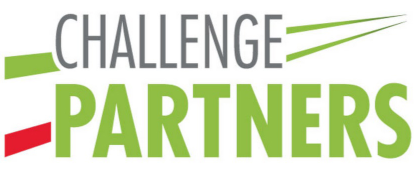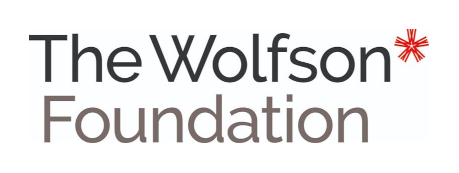History
Why study History?
At Barnhill students learn powerful knowledge about the past. This is achieved through a history curriculum reflective of our school’s community, spanning the Roman invasion of Britain to modern multiculturalism and highlighting enduring themes of the human condition such as empire and migration. This is combined with the disciplinary expertise of history, whereby students learn how to generalise appropriately, draw on enough precedent to give explanatory power to their arguments and learn enough common terms of reference to challenge the ground of others. This is underpinned by the departments’ staff. Each is committed to advancing their own historical understanding in history, and practice as teachers, to ensure every pupil is learning. This combination helps students achieve the highest of outcomes while supporting a broad, and diversified, knowledge of the past underpinning their growth as empathetic, conscious, and active citizens who flourish in their communities and society.
Programme of Study
YEAR 7: Power, Religion and Society, c.800-c.1650
- How has London changed over time?
- Why has Alfred been called 'Alfred the Great'?
- What was the main consequence of the Norman Conquest?
- What was medieval Islam’s greatest city?
- Were the crusades really about religion?
- How did society change in 14th century England?
- In what ways did the Reformation matter to ordinary people?
- What can pamphlets tell us about 17th century politics?
YEAR 8: Economy, Empire and Resistance, c.1500-c.1900
- How did Early Modern England become more connected to the world?
- Who was the greatest Mughal emperor?
- How far did the East India Company cause the Mughal Empire to fall?
- Who and what was involved in the Transatlantic Slave Trade?
- How far did enslaved Africans resistance the Transatlantic Slave Trade?
- Why were Industrial towns and cities so unhealthy?
- How did average 'Joe/Jane' gain more power in 19th and 20th centuries?
- How different was the British Empire in Australia and India?
- Did tensions over Africa make a European war more likely?
- How far did a bullet spark the First World War?
YEAR 9: War, Identity, Society, c.1900-present day
- How did life change for women in Britain, c.800 to present day
- How did different people experience the First World War?
- How did the First World War impact Britain and Europe?
- What was the main turning point of the Second World War?
- How and why could the Holocaust happen?
- How and why was British India partitioned?
- What are the narratives of the Palestine and Israel?
- How far has modern Britain become equal?
Year 10: Edexcel GCSE History
- Paper 2: The Reigns of King Richard and King John, 1189-1216 (20%)
- Paper 1: Migrants in Britain, c.800-present day and Notting Hill, c.1948-c.1978 (30%)
Year 11: Edexcel GCSE History
- Paper 3: Weimar and Nazi Germany, 1918-1939 (30%)
- Paper 2: The American West, c.1825-c.1895 (20%)
Year 12 and Year 13: OCR A-Level
- Paper 1: Britain 1930-1997, 25%
- Paper 2: Genghis Khan and the Explosion from the Steppes c.1167–1405, 15%
- Paper 3: From colonialism to independence, The British Empire 1857-1967, 40%
- Coursework: 3000–4000-word essay on historical interpretations, 20%
Useful Resources
KS3
- https://senecalearning.com/en-GB/
- https://history.org.uk/student (Please ask your teacher for the login to the student zone)
- https://www.bbc.co.uk/bitesize/subjects/z7svr82
- Crash Course, World History: https://www.youtube.com/watch?v=Yocja_N5s1I&list=PLBDA2E52FB1EF80C9
- Crash Course, European History: https://www.youtube.com/watch?v=WhtuC9dp0Hk&list=PL8dPuuaLjXtMsMTfmRomkVQG8AqrAmJFX
- BBC Teach, History: https://www.youtube.com/watch?v=O7JLSnPmNPU&list=PLcvEcrsF_9zI2dNGU9uUOWo9tenQi93UG
KS4
- Paper 1: Migrants in Britain, c.800-present day and Notting Hill, c.1948-c.1978 Revision Guide
- Paper 2: The American West, c.1825-c.1895 Revision Guide
- Paper 2: The Reigns of King Richard and King John, 1189-1216 Revision Guide
- Paper 3: Weimar and Nazi Germany, 1918-1939 Revision Guide
KS5
Each paper has an individual subject reading list, which will be given to students. A copy of all books on reading list are available in the School and Sixth Form library.
Homework in History
At Key Stage 3, homework will include knowledge tests per topic and extended reading opportunities.
At Key Stage 4, homework will include knowledge tests and practice past paper questions.
At Key Stage 5, homework will inform the subsequent lesson. Students are expected to independently read ahead and note take according to their PLC (Personalised Learning Checklist), as well as complete more precise and detailed homework which will be reviewed during the next lesson. Students are then expected to consolidate their notes and acting on feedback provided by the teacher.
Enrichment opportunities in History
All students will be enriched primarily through the study of a diverse curriculum reflecting the multicultural community and society of the students. This will be enhanced through trips and visits to nationally renowned museums and places such as the British Museum, Museum of Migration and Hampton Court Palace and the Palace of Westminster. Students will also explore more local History, such as Uxbridge Bunkers, the Polish War Memorial, Hayes Canals, and Notting Hill.
In school, the History Department also runs a ‘Historical Film Club’ for different year groups, offering the chance for students to see historical interpretations of topics directly or indirectly related to the curriculum.
All students also have access to the Historical Association website and student zone. Logins are available directly through a member of the History department. https://www.history.org.uk/student









